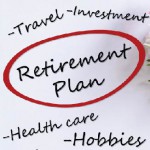“Aging is not lost youth, but a stage of opportunity and strength” ~Betty Friedan
A few months ago I blogged about my views around the idea of “50 being the new 40” and how it bothered me that we, as a culture, were perpetuating this myth, disowning parts of our actual age and the natural benefits we draw from our years of life experience. I still stand behind this viewpoint, but after reading a section from “Passages”, originally published in 1976 by Gail Sheehy, I have a new appreciation for how the idea of pushing back the clock in the last few decades has some merit.
Read along to Sheehy’s words with me and see what you think: “The ‘I should’ of the twenties, which gives way to the “I want” of the thirties, becomes the “I must” of the forties.” The author ends there, defining the decades, not even giving mention to the 50’s, other than by omission. Interesting exclusion to consider, as culturally in the 1970’s, people in their 50’s may have seemed oldish and well beyond the urgency of the “I musts” reaped from their 40’s. As I read this passage it seemed anachronistic and very much out of step with the way I perceive the battle cry of each decade.
I do remember the 1970’s and how older people seemed, well, older back then. Yes, I was in my teens at the time, so it makes sense to have this youthful impression, but it goes beyond that. Think about the previous “Greatest” generation, born between wars and before 1946. I recollect my own mother’s story, which mirrored many young women back then, with pressure to marry early before becoming a dreaded spinster. In my mom’s case, she was the second-to-last in her group to marry, at the tender age of 19. The pressure to have children came next and my mom had three by the time she was 24. Interestingly, my youngest sibling was born in 1961, the same year the birth control pill became widely available. If couples in their early 20’s were having children, then by the time they were in their 40’s, grandchildren or at the very least empty nests were the reality, and most of the milestones had already been checked off the list. It is no wonder that people seemed older back then.
Fast forward to today. Marriages often occur a decade or so later and so do all the other milestones, pushing everything by 10-15 years. I can see how the urgency Sheehy spoke about the 40’s now resembles more a person in their 50’s-60’s and beyond.
That’s why I have rethought the idea about 50-is-the-new… because we have more time to meet life’s milestones at a slower pace and consequently can savor our decades more. A fun fact that contributes to the natural delay: On average, we have gained an additional 30 years to our life span in the last century. It’s no wonder we feel like 50 could conceivably be the half way mark instead of the beginning of the end. That’s why I push for owning and being in each decade fully, but also can appreciate how far we have come to make 50 seem more like 40.





